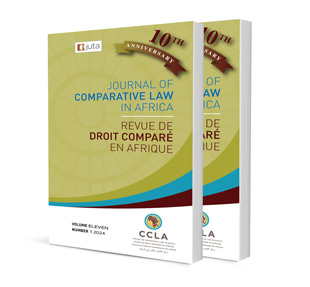Sustainable Solid Waste Management Practices in South Africa: a Comparative Legal Analysis

Sustainable Solid Waste Management Practices in South Africa: a Comparative Legal Analysis
Authors: Katlego Mashiane, Kola O Odeku
ISSN: 2521-2605
Affiliations: LLD Candidate, Faculty of Management and Law, University of Limpopo; Professor, Faculty of Management and Law, University of Limpopo
Source: Journal of Comparative Law in Africa, Volume 11 Issue 2, p. 1 – 42
https://doi.org/10.47348/JCLA/v11/i2a1
Abstract
South Africa is facing increasing mismanagement of solid waste, such as illegal dumping in open areas. This mismanagement of solid waste in South Africa is an environmental issue that threatens human rights. This study analyses sustainable solid waste management practices in South Africa and draws lessons from England and Kenya focusing on solid waste management, collection and disposal. England is a developed country with advanced waste management systems, while Kenya is a developing country facing similar solid waste management challenges to South Africa’s. While South Africa has its legal framework on solid waste management, the lessons from both England and Kenya are to improve and strengthen waste management practices and enforcement in South Africa. This study deployed and used a qualitative research approach to highlight how England, Kenya, and South Africa’s legal frameworks reflect their socioeconomic conditions, environmental priorities, and governance enforcement. The findings of the study are important for policy development. The study concludes that South Africa’s legal and policy framework needs to be inclusive and enhanced for effective enforcement of sustainable solid waste management.